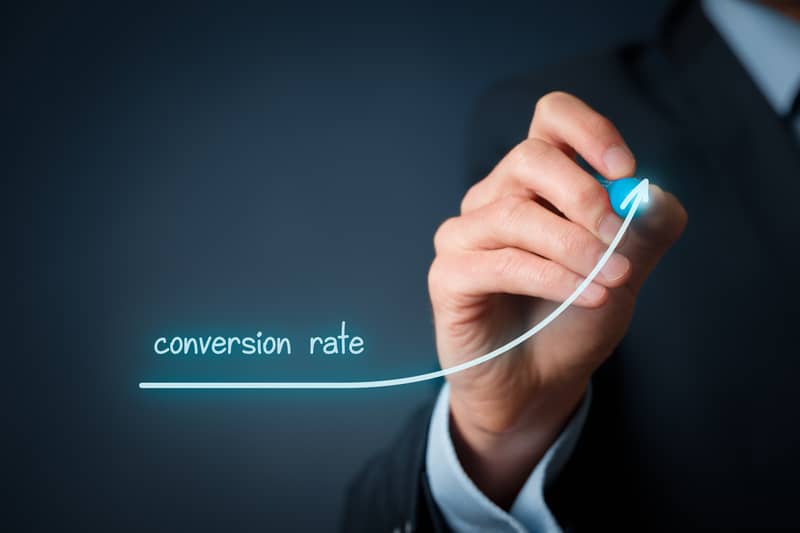In online business or eCommerce, a conversion occurs when the recipient of a marketing message performs a desired action such as:
- Submitting information
- Signing up for a newsletter
- Completing a form
- Downloading a resource
- Recommending your site
- Engaging with the site (spends time on site, visits certain pages, count of pages loaded)
- Interacting with a chatbot
- Calling a given number
- Requesting a quote
- Creating an account
- Making a purchase (the ultimate goal)
Types of conversions:
- Macro-conversions are primary goals such as sales, quote requests and account creation.
- Micro-conversions facilitate the path to macro-conversions (adding products to the cart, calling a number, completing a form, etc.).
What is conversion tracking?
Conversion tracking occurs when a company monitors the actions of consumers/users on their website. It’s a way to determine the effectiveness of an advertising campaign. It helps a business understand if what they are doing is really working by giving an accurate picture of what’s taking place on their website and informing them of how many of their website visitors successfully perform the desired action(s).
What is a conversion rate?
The conversion rate is the number of conversions divided by the total number of visitors; the percentage of total visitors that convert.
Why should you care about conversion rates?
Monitoring your conversion rate enables you to improve your performance over time. It allows you to make data-driven decisions for your business. Conversion tracking lets you measure your successes and failures, improve upon them and grow your online business.
What conversion goals should you track?
There are a number of indicators and metrics related to conversions that can be tabulated to help determine the effectiveness of your conversion efforts.
- Number of conversions
- Overall conversion rate
- New visitor conversion rate
- Return visitor conversion rate
- Cost per conversion/acquisition
- Traffic sources (direct, search and referral visitors)
- Bounce rate (percentage of visitors that leave a webpage without taking an action)
- Interactions/pages per visit
- Hits on destination page
- Exit pages (pages causing people to leave)
- Events (played videos, downloaded content)
- Session duration
- Value per visit
No matter what goals you have set for your website (selling more products, attracting more customers, drawing more visitors), optimizing your conversion rate is the key to success for your business. Once you start tracking conversions, the next step is to improve your conversion rate.
Need help tracking your conversions? Want to increase your conversion rate? Call us at (403) 456-0072 or email [email protected]. Allow us to be your very own marketing department! Connect with our tightly-knit team of knowledgeable digital-first consultants, each eager to help your business grow. Contact Us today.
How useful was this post?
Click on a star to rate it!
Average rating 0 / 5. Vote count: 0
No votes so far! Be the first to rate this post.

















